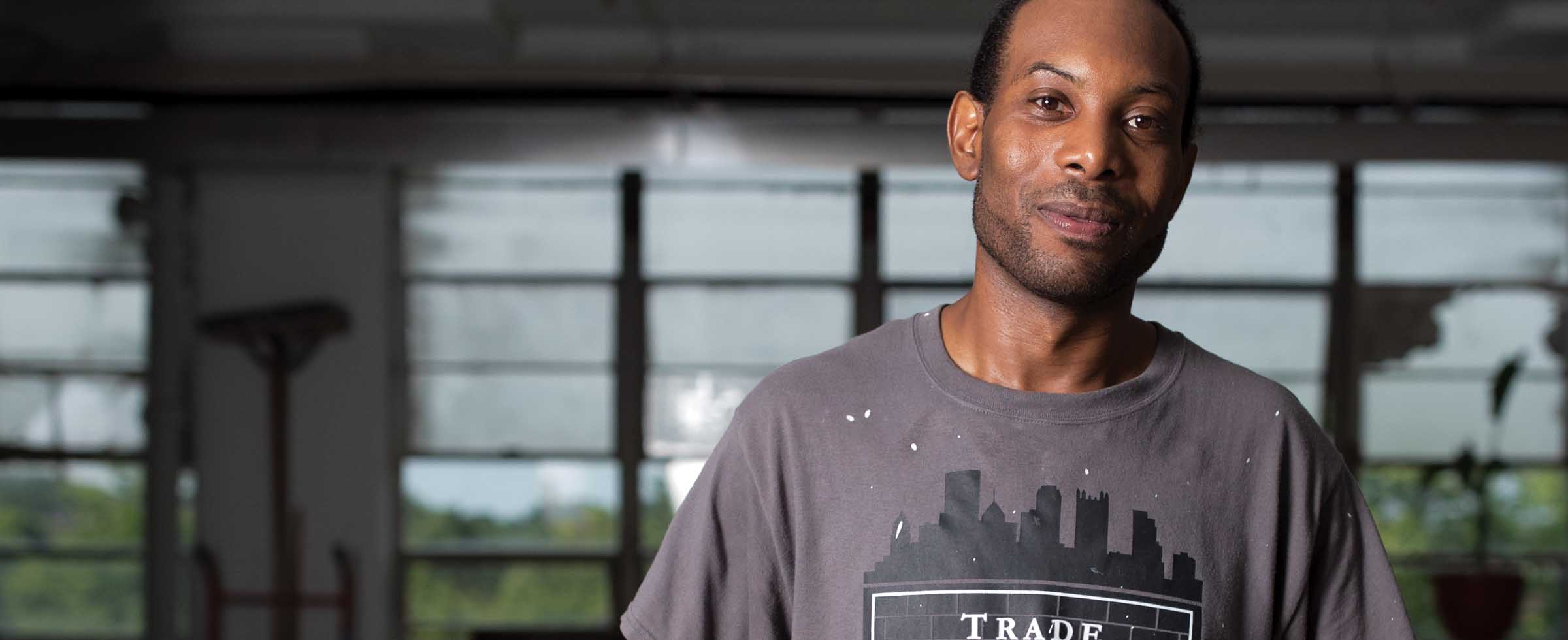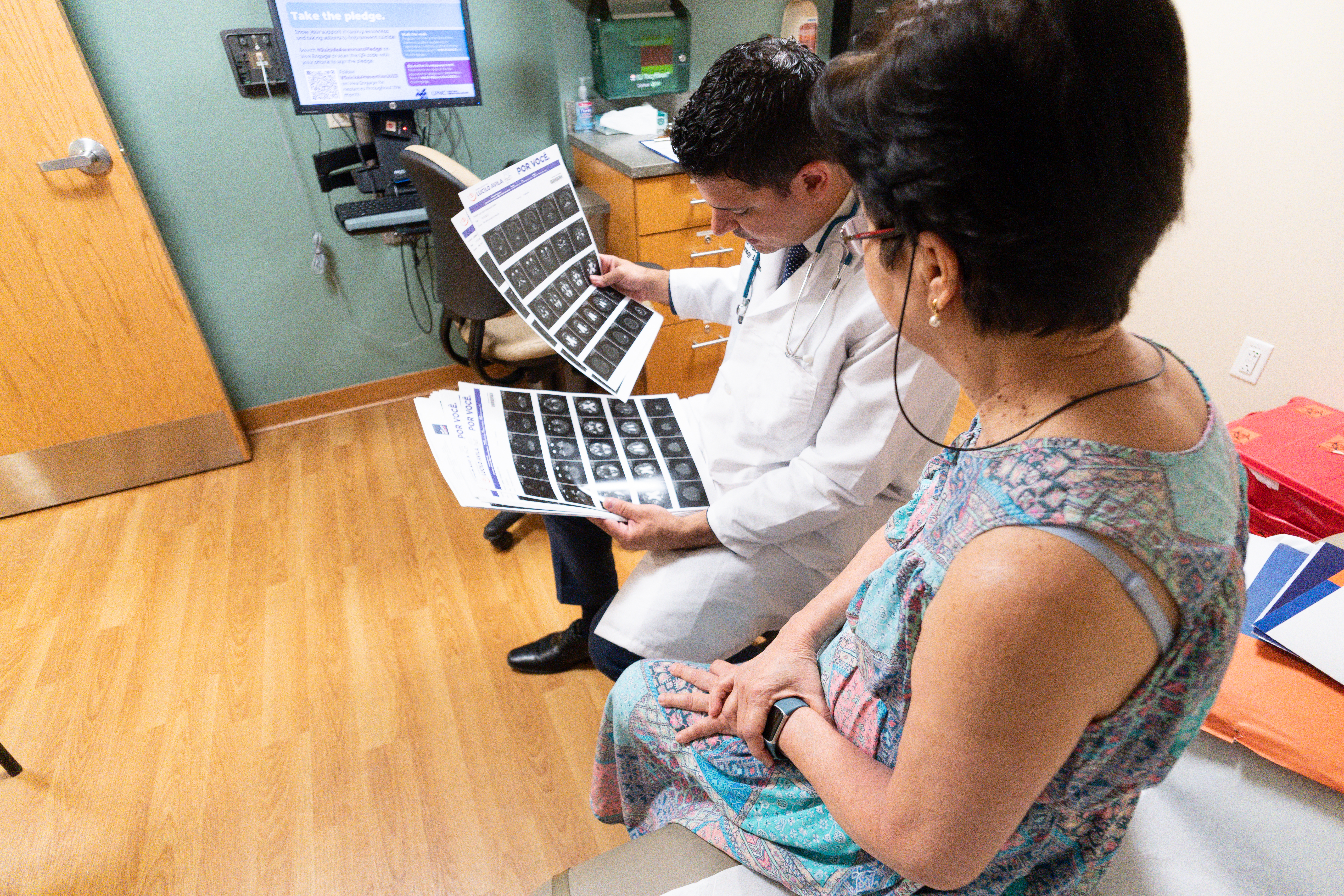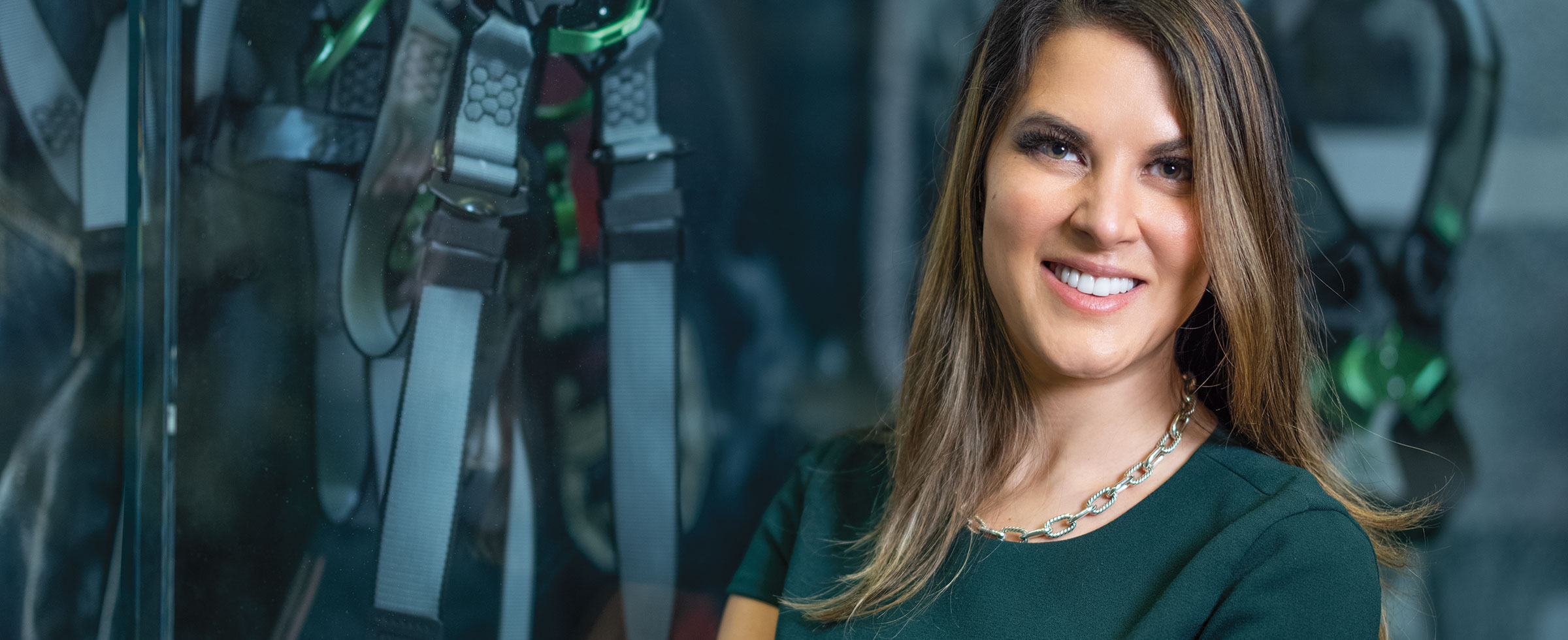
DRIVERS ZIPPING INTO DOWNTOWN on the Parkway East can easily ignore the gray facade of the Allegheny County Jail. The ranks of men and women held inside — some 2,200 a day in a building built for 1,450 — are growing. Incarceration rates at the county jail have increased by 62 percent over the past 20 years, and now consume half of the county’s annual budget. African American families in Allegheny County are disproportionately affected: 13 percent of the county’s population is African American, but nearly half of the people in the county jail are black.
What are we doing wrong? The Pittsburgh Foundation’s 100 Percent Pittsburgh organizing principle was created to help break the cycle of generational poverty that is responsible for an increase in the school-to-prison pipeline for youth ages 12 to 24, particularly in minority communities. The Foundation asked youth involved in the juvenile justice system how the system could be changed. Their top recommendations: End zero-tolerance school discipline policies that often lead to confinement for minor nonviolent infractions; and increase access to mental health services. The Foundation also supported a study by the University of Pittsburgh Institute of Politics’ Criminal Justice Task Force, which found that costly and unfair pre-trial detention has been a major contributor to the county’s 70 percent jail population increase.
The Foundation is also making grants to promising local efforts. A pilot project underway on the city’s North Side to keep first-time offenders out of jail focuses on specialized police training. A second program supports those leaving jail to learn construction trades at the Trade Institute of Pittsburgh in Homewood. Since Steve Shelton founded the Institute in 2009, 200 graduates have found living-wage jobs, and the group’s reincarceration rate is 4 percent, far below the statewide average of 22 percent. Now enrolled in the Trade Institute’s Entrepreneur in Training Project, Ronnell Miller is one of the formally incarcerated individuals hoping to beat the odds.
I get up every day and go to work. That’s what adults do, right? I joined the Trade Institute program in February to get skilled in masonry and carpentry. I build brick ovens to bake pizza and bread. It’s an old tradition. Now I’m learning how to make that into a business, researching and meeting people.
I’m 45 years old. I was born in Pittsburgh, then grew up in Florida, Atlanta and Alabama. I enrolled at Tuskegee University there, but used my student loan money to buy drugs. I returned here in my late teens. I still have a lot of family in town, but my mother passed away in 2016.
My first conviction was a year for selling marijuana and crack cocaine on the South Side in the early 1990s. I was a flourishing drug dealer, 19 years old, making $150,000 a year. I was a businessman. For the next conviction, I got three to 36 years, but it was a split sentence, so I served three years, then probation. Altogether, I’ve had 18 incarcerations.
I’ve been shot in the head. At one point, my 15-year-old son was in the same pod as me at the county jail. That was hard. You don’t show your child this. Now he’s at Pine Grove SCI [a state prison for juvenile offenders], serving five to 10 years for homicide.
I have nine kids, from age 3 to 24. Five of them I don’t see; they’ve been taken away, someone else takes care of them. I didn’t have a father, no real role model. But no one raised me wrong. My mom gave me everything.
I was actually in the Trade Institute program before, two years ago. I’d been at the Renewal Center [a transition service for ex-offenders] for two months, but went back to jail for something I didn’t do. I had a dirty urine test [which violated parole]. That meant another six-month stint. My daughter cried. She said, “You promised you wouldn’t go back to jail.” While I was in jail, Steve Shelton came in to talk to the guys on my pod. He looked at me and said, “I know you.” He told me to come and see him when I got out, last November.
I didn’t do that right away. When you get out, everybody wants to feed you — “Come on over to eat.” You see old friends; they want to help you. A friend put money and a gun in my hand. “I got ya,” he said. That’s what I used to do: take care of others. But the hustling lifestyle is no good if you care about your kids. Now I’m taking responsibility. It’s on me. I need to be here for my kids. I wasn’t before. So I called Steve.
This time I got through the [introductory program] in seven weeks, instead of 10. The other guys said, “Why do you learn this so fast?” I messed with them — I didn’t tell them I’d been here before. At first, I wasn’t living in a good place. There were crackheads arguing at two o’clock in the morning and I had to get up at seven for work. Steve kept asking me, “Where are you staying? You OK?” He helped me find a better place.
This work is hard. I have $3,000 in the bank and I feel broke. It’s tugging on me, the old lifestyle, the old vices and desires. But Steve has helped me and my family, too. I’ve had two cousins and my older brother here, and three nephews, but one got kicked out today.
I got off parole May 29. I’m on probation now. My biggest thing is to get done what needs to be done, every day, to make me a better man. The other things will fall into place. It’s different now. I was surviving. Now, to live means something more.
Original story appeared in the Report to the Community 2016-17




